Benedict
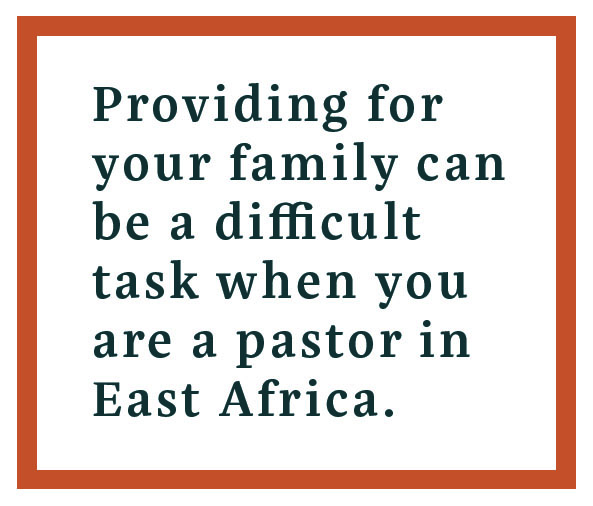 Providing for your family can be a difficult task when you are a pastor in East Africa. Benedict Oduori and his wife, Josephine, lived in a small, dilapidated grass-thatched house that barely stayed standing. Although Benedict felt called to shepherd others, he struggled to earn enough money as a pastor to support their growing family.
Providing for your family can be a difficult task when you are a pastor in East Africa. Benedict Oduori and his wife, Josephine, lived in a small, dilapidated grass-thatched house that barely stayed standing. Although Benedict felt called to shepherd others, he struggled to earn enough money as a pastor to support their growing family.So Benedict decided to get a second job as a cane cutter, but this meant long days in dirty, humid farms, chopping sugar cane only when it was ready to be harvested. The 14-hour days required an extraordinary amount of energy, determination, and stamina. Because of the stress caused by the difficult work and the delay in getting paid, many men resorted to smoking marijuana to get through their days, while others drank a local moonshine called changa'a, meaning “kill me quick.” But Benedict avoided joining the other men and looked daily to God to give him the strength to endure this challenging time.
Still unable to provide for his family, Benedict tried carpentry instead, but that came with its own set of financial challenges. If he did not have any orders on a particular day, his family would not eat. Eventually, he set up a small account with a nearby shop so he could get food on credit, paying it back once he had an order for furniture. This solved the immediate problem, but it forced him into a cycle of never-ending debt.
Then in 2000, a unique opportunity opened up for Benedict to be a visiting preacher at another church. After the church services, some of his friends told him about an ELI agricultural training being held nearby. Benedict wondered if God was doing something to answer his prayers. Farming had the potential to be an excellent source of income. If the right skills were learned and applied, he could support his family; he even thought of providing training to other pastors and church-goers. Without hesitation, Benedict attended the training.

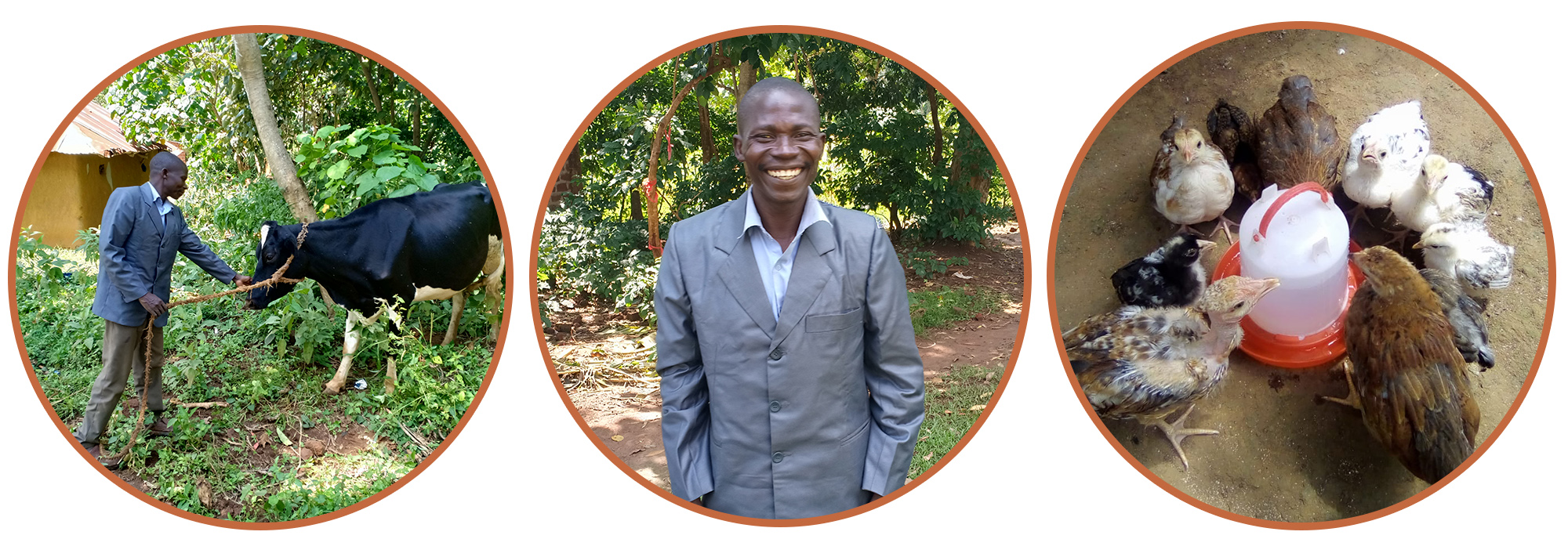 One of the many ideas Benedict learned was a technique for helping farmers protect their hard-earned crops from being destroyed by weevils. ELI's proprietary air-tight bags were a God-send to thousands of farmers who no longer lost 20-50% of their harvests due to insect infestation. Benedict's passion and commitment allowed him to slowly build a client base, and over time he built a thriving small business as a reputable local distributor of the ELITE (ELI Triple Enclosure) grain-storage bags. He has now sold over 5,000 bags, which equates to over 500,000 lbs. of grains rescued from destruction!
One of the many ideas Benedict learned was a technique for helping farmers protect their hard-earned crops from being destroyed by weevils. ELI's proprietary air-tight bags were a God-send to thousands of farmers who no longer lost 20-50% of their harvests due to insect infestation. Benedict's passion and commitment allowed him to slowly build a client base, and over time he built a thriving small business as a reputable local distributor of the ELITE (ELI Triple Enclosure) grain-storage bags. He has now sold over 5,000 bags, which equates to over 500,000 lbs. of grains rescued from destruction! 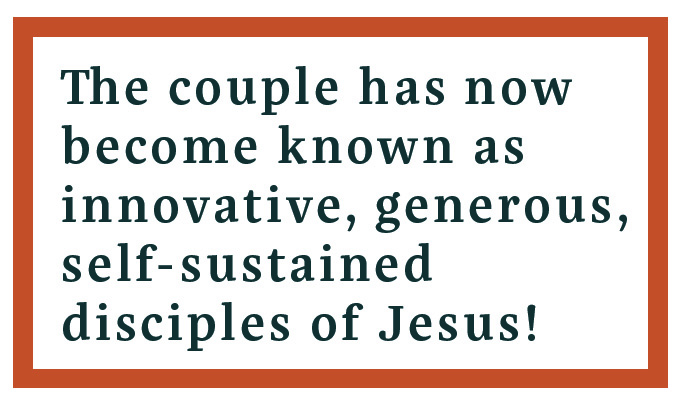 As time went on, Benedict and Josephine continued learning from ELI and added raised-bed growing, vegetable production and composting, and poultry keeping to their skill set. Requests from others motivated Benedict and Josephine to begin a simple training program at their own home so that their neighbors could learn these techniques too. The couple has now become known as innovative, generous, self-sustained disciples of Jesus! They are highly sought after by communities, churches, and other non-governmental organizations that want to learn how to successfully grow food and safely store their harvests. Putting their faith into action in this way has opened up wonderful doors for sharing about God.
As time went on, Benedict and Josephine continued learning from ELI and added raised-bed growing, vegetable production and composting, and poultry keeping to their skill set. Requests from others motivated Benedict and Josephine to begin a simple training program at their own home so that their neighbors could learn these techniques too. The couple has now become known as innovative, generous, self-sustained disciples of Jesus! They are highly sought after by communities, churches, and other non-governmental organizations that want to learn how to successfully grow food and safely store their harvests. Putting their faith into action in this way has opened up wonderful doors for sharing about God.Benedict is now ministering at a church in Nakaywa, Kenya and continues to share his knowledge of farming techniques with other pastors. Then, they can pass it along to their congregations. To date, he has helped over 1,200 people—including children and widows—with his farming skills!
Benedict’s life has completely changed since that first ELI training back in 2000. He can now take care of his family of eight and doesn’t worry about where their next meal will come from.
At a recent ELI event he was asked what makes ELI different than other organizations and programs. 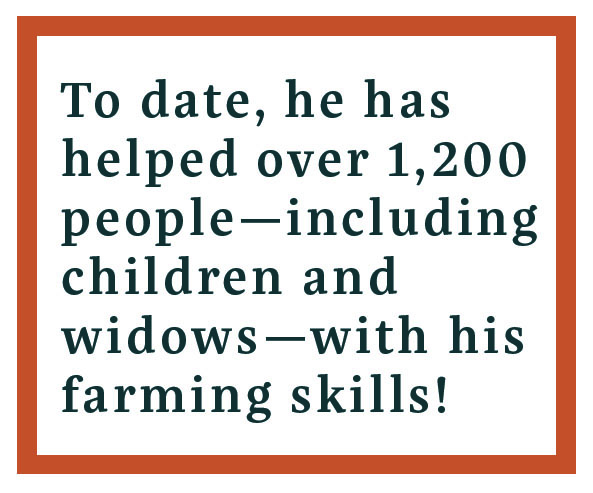 His answer was insightful: many organizations have an agenda when they enter a community. They arrive for a day or two and conduct a seminar, training, or program and then leave, knowing they have disseminated information to people. But in Benedict's eyes, this rarely brings about any true transformation. He believes fully in ELI's development model of sharing ideas, followed by training, then coaching, and finally mentoring people as their leadership capacities increase. With ELI he feels equipped to be the solution to poverty in his family, community, and nation. As an ambassador of Jesus, he can train others in both evangelism and agricultural/business skills, which is ultimately equipping them to become World Changers.
His answer was insightful: many organizations have an agenda when they enter a community. They arrive for a day or two and conduct a seminar, training, or program and then leave, knowing they have disseminated information to people. But in Benedict's eyes, this rarely brings about any true transformation. He believes fully in ELI's development model of sharing ideas, followed by training, then coaching, and finally mentoring people as their leadership capacities increase. With ELI he feels equipped to be the solution to poverty in his family, community, and nation. As an ambassador of Jesus, he can train others in both evangelism and agricultural/business skills, which is ultimately equipping them to become World Changers.
 His answer was insightful: many organizations have an agenda when they enter a community. They arrive for a day or two and conduct a seminar, training, or program and then leave, knowing they have disseminated information to people. But in Benedict's eyes, this rarely brings about any true transformation. He believes fully in ELI's development model of sharing ideas, followed by training, then coaching, and finally mentoring people as their leadership capacities increase. With ELI he feels equipped to be the solution to poverty in his family, community, and nation. As an ambassador of Jesus, he can train others in both evangelism and agricultural/business skills, which is ultimately equipping them to become World Changers.
His answer was insightful: many organizations have an agenda when they enter a community. They arrive for a day or two and conduct a seminar, training, or program and then leave, knowing they have disseminated information to people. But in Benedict's eyes, this rarely brings about any true transformation. He believes fully in ELI's development model of sharing ideas, followed by training, then coaching, and finally mentoring people as their leadership capacities increase. With ELI he feels equipped to be the solution to poverty in his family, community, and nation. As an ambassador of Jesus, he can train others in both evangelism and agricultural/business skills, which is ultimately equipping them to become World Changers.
Currently, Benedict continues to pastor and farm, and he loves to share with others, "I am empowering lives today with my life. And now I often visit and serve in Uganda, which is international. So, I am empowering lives internationally--I AM ELI!"
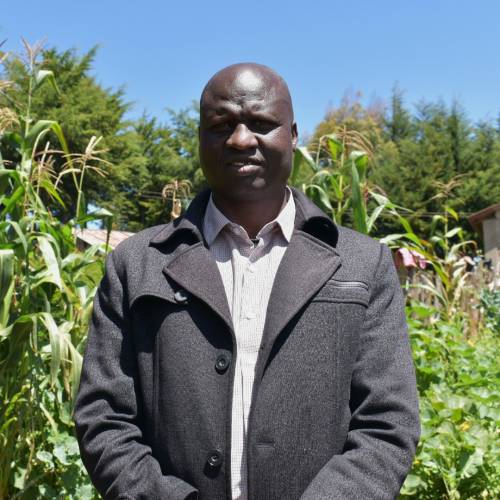
Bishop Jacob Chebii
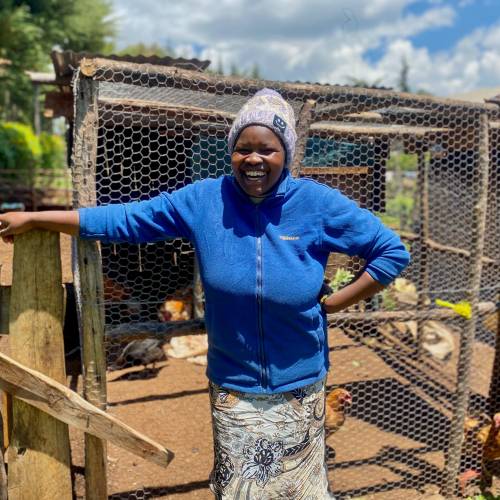
Pastor Purity

Daniel Lelei
_1694583886_500x500_compression-7.jpg)
Pastor Mengich
_1659068524_500x500_compression-7.jpg)
Rebecca
Jane Samoei
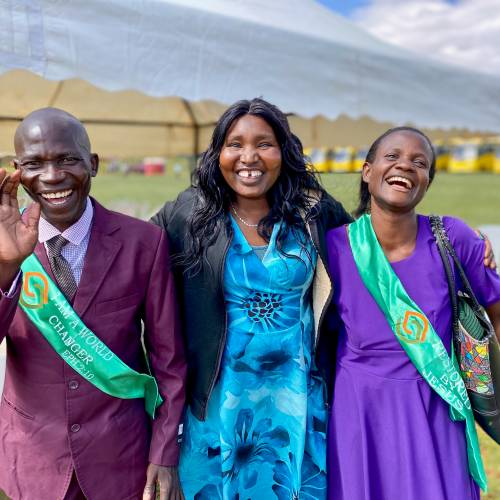
Edna Maiyo
Powered by Site Stacker

